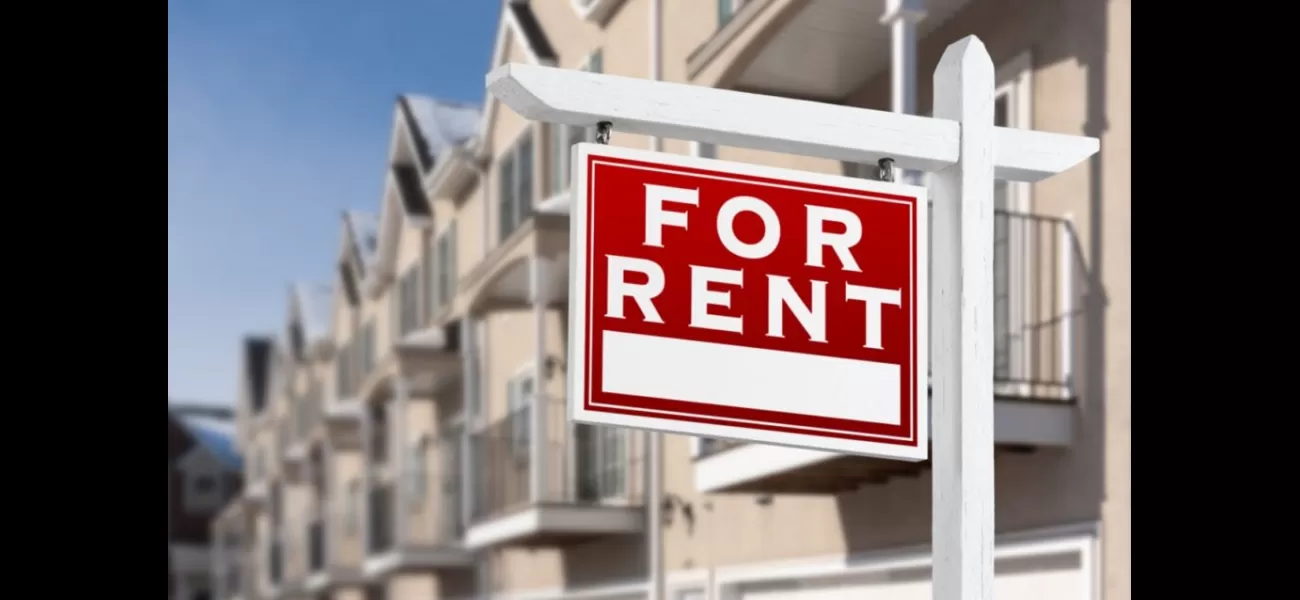Starting July 1, California landlords will be restricted in the amount they can charge for security deposits.
California joins 11 other states in limiting security deposits to one month's rent.
July 1st 2024.

Starting July 1st, there will be a new law in California that aims to make housing more accessible and affordable. This law, known as Assembly Bill 12, puts a limit on the amount of security deposit that landlords can collect from their tenants. From now on, landlords will only be allowed to collect a maximum of one month's rent as a security deposit. This new law is a step towards addressing the rising rental prices and making it easier for people to find affordable housing.
However, it's worth noting that this law does have some exceptions. Landlords who own only two properties with no more than four units for rent will be exempt from this rule. With the passing of this law, California becomes the twelfth state in the United States to have a similar law in place.
This new law has been welcomed by many Californians who are struggling with the increasing cost of living. To put things into perspective, the average cost of renting a one-bedroom apartment in California in 2023 is expected to be $2,730. For many, including Daniel Almanza from San Diego, this is simply unaffordable. Almanza, his wife, and two children currently live in a one-bedroom studio apartment that costs $1,300 per month because it's the only place they can afford. Sadly, Almanza's situation is not unique, as many of his neighbors are also struggling to make ends meet and have resorted to renting out parts of their apartments to other families.
Rafael Bautista, from the San Diego Tenants Union, believes that this new law, which was proposed by Assemblymember Matt Haney, will remove a major financial barrier for renters who are looking for more affordable housing options. He explains that by limiting the amount of security deposit that landlords can collect, it will be easier for people to apply for rental properties without having to worry about coming up with large sums of money upfront.
Patricia Mendoza, the statewide organizer for AACE, a non-profit organization that advocates for tenant's rights, believes that the increase in rental prices is directly linked to the growing homelessness crisis in the state. She points out that while San Diego may be known as the "finest city," it is also the most expensive. Mendoza sees firsthand the impact of rising rents on people's lives, with many being evicted and left homeless.
Mendoza sees the passing of Assembly Bill 12 as a positive step in the right direction, but believes that more needs to be done to protect tenants. She explains, "It's going to help a lot of people. It is a really good step in the right direction, but we need to do more. We need more tenant protections."
However, not everyone is happy about this new law. Some landlords are concerned that it may lead to rental properties being taken off the market. The California Apartment Association, the largest statewide organization representing the interests of the rental housing industry, believes that this law unfairly limits a landlord's ability to cover property damage or unpaid rent.
On the other hand, Masih Fouladi, the executive director of the California Immigrant Policy Center, believes that the benefits of this law for renters, especially renters of color and immigrants, outweigh any potential concerns from landlords. He explains that in California's expensive rental market, high-security deposits often prevent immigrants and people of color from accessing safe and affordable housing. By capping these deposits, Assembly Bill 12 promotes equity and empowers marginalized communities across the state.
In conclusion, the passing of Assembly Bill 12 is seen as a positive step towards making housing more accessible and affordable in California. While some are concerned about its impact on landlords, many believe that it will benefit renters, particularly those facing financial difficulties. This law may not be a solution to all of California's housing problems, but it is a step in the right direction.
However, it's worth noting that this law does have some exceptions. Landlords who own only two properties with no more than four units for rent will be exempt from this rule. With the passing of this law, California becomes the twelfth state in the United States to have a similar law in place.
This new law has been welcomed by many Californians who are struggling with the increasing cost of living. To put things into perspective, the average cost of renting a one-bedroom apartment in California in 2023 is expected to be $2,730. For many, including Daniel Almanza from San Diego, this is simply unaffordable. Almanza, his wife, and two children currently live in a one-bedroom studio apartment that costs $1,300 per month because it's the only place they can afford. Sadly, Almanza's situation is not unique, as many of his neighbors are also struggling to make ends meet and have resorted to renting out parts of their apartments to other families.
Rafael Bautista, from the San Diego Tenants Union, believes that this new law, which was proposed by Assemblymember Matt Haney, will remove a major financial barrier for renters who are looking for more affordable housing options. He explains that by limiting the amount of security deposit that landlords can collect, it will be easier for people to apply for rental properties without having to worry about coming up with large sums of money upfront.
Patricia Mendoza, the statewide organizer for AACE, a non-profit organization that advocates for tenant's rights, believes that the increase in rental prices is directly linked to the growing homelessness crisis in the state. She points out that while San Diego may be known as the "finest city," it is also the most expensive. Mendoza sees firsthand the impact of rising rents on people's lives, with many being evicted and left homeless.
Mendoza sees the passing of Assembly Bill 12 as a positive step in the right direction, but believes that more needs to be done to protect tenants. She explains, "It's going to help a lot of people. It is a really good step in the right direction, but we need to do more. We need more tenant protections."
However, not everyone is happy about this new law. Some landlords are concerned that it may lead to rental properties being taken off the market. The California Apartment Association, the largest statewide organization representing the interests of the rental housing industry, believes that this law unfairly limits a landlord's ability to cover property damage or unpaid rent.
On the other hand, Masih Fouladi, the executive director of the California Immigrant Policy Center, believes that the benefits of this law for renters, especially renters of color and immigrants, outweigh any potential concerns from landlords. He explains that in California's expensive rental market, high-security deposits often prevent immigrants and people of color from accessing safe and affordable housing. By capping these deposits, Assembly Bill 12 promotes equity and empowers marginalized communities across the state.
In conclusion, the passing of Assembly Bill 12 is seen as a positive step towards making housing more accessible and affordable in California. While some are concerned about its impact on landlords, many believe that it will benefit renters, particularly those facing financial difficulties. This law may not be a solution to all of California's housing problems, but it is a step in the right direction.
[This article has been trending online recently and has been generated with AI. Your feed is customized.]
[Generative AI is experimental.]
0
0
Submit Comment





